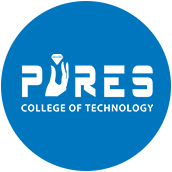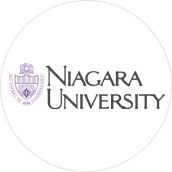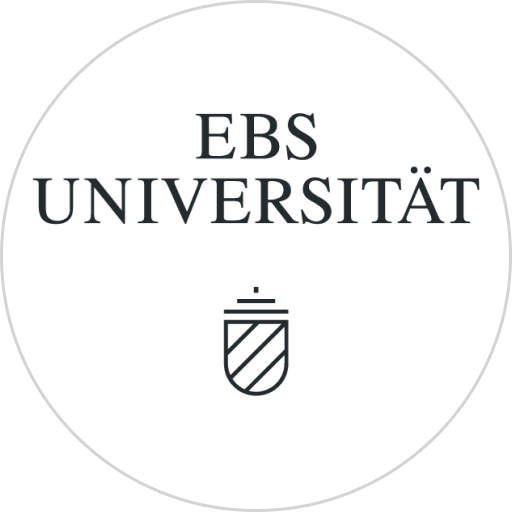• Study in Canada
Masters in Geology in Canada: Colleges, Courses, and Fees
2053 Reads
3 min Read
• Canada is a vast geological land passionate about fossils, Earth's history and mysteries.
• The country houses world-class institutions which nurture budding geologists.
• Explore the resources below and get deeper insights about courses, fees and eligibility criteria for pursuing a Master's in Geology in Canada.
• Completion of this degree can help students land lucrative career opportunities across the world.
Canada is one of the world's most attractive study destinations due to its strong emphasis on university excellence and on luring international students who can subsequently immigrate. A Masters in Geology from Canada equips professionals with the skills and knowledge required to study the Earth's structure, minerals, and species. During this program students investigate how these things evolved with time and their implications for the environment and humanity. This master's degree from Canada opens up a broad range of career options for international students, such as geochemists, hydrogeologists, etc., which can help them achieve their career goals and live the life of their dreams.
Why Study MS in Geology in Canada?
| Comprehensive Curriculum | Choosing an MS in Geology in Canada guarantees a combination of theoretical study and hands-on practical practice. |
| Job Opportunities | Completing a Geology program in Canada is frequently followed by instant, profitable career prospects. |
| Quality of life | Pursuing a Master's degree in Geology in Canada gives international students access to a higher quality of life and education. |
| Top-ranked institutions | Over 10 Canadian colleges are ranked among the best by QS. While studying in these institutions, students obtain world-class education which leads to a variety of interesting career opportunities. |
Universities/Colleges Offering MS in Geology in Canada
Lakehead University
| Name of the University | Lakehead University |
| Course Name | Geology |
| Program Name | Master Of Science In Geology - (Thesis Based) |
| Average Tuition Fees (CAD) | $22,000-$ 23,000 |
University of Regina
| Name of University | University of Regina |
| Course Name | Geology |
| Program name | Master Of Science In Geology - (Thesis Based) |
| Average Tuition Fees (CAD) | $13,000-$ 15,000 |
Eligibility Criteria for Masters in Geology in Canada
Documents Required for Masters in Geology in Canada
| Valid Passport | Students must have a valid passport to make an application to institutions in Canada. |
| Academic Records | They need to submit the academic records i.e. high school and graduation (semester-wise) mark sheets. |
| School Leaving Certificate | Some institutions also require school leaving certificate from the previous institution one has studied from. |
| Proof of English language Competency (IELTS/TOEFL/PTE) | Every international student needs to prove their English proficiency by providing scores of proficiency tests like IELTS/TOEFL/PTE. |
| GRE or GMAT Scores | Some institutions might require scores of specialized exams such as GRE and GMAT for admissions. |
| Statement of Purpose | Students must also submit an SOP including their reasons for studying in Canada, academic details, vision for the future, and motive behind selecting a particular program/university. |
| Current Resume | Current CV of the student is another essential document required in the application process. |
| Proof of Sufficient Funds (GIC) | To study in Canada, students are also required to show the minimum GIC of CAD 20,635 in addition to the first year's tuition fees and travel expenses. |
Application Process for MS in Geology in Canada
Job Opportunities After MS in Geology in Canada
| Exploration Geologists | Exploration geologists discover where minerals may be found, analyze their quality and quantity, and judge whether and how to extract them. |
| Mining Geologists | Mining geologists use their knowledge of earth sciences to discover and assess mineral deposits. They play an essential role in the mining sector, directing the extraction of rich minerals while taking environmental and safety precautions. |
| Environmental Geologists | Environmental geologists investigate the interactions of the geosphere, hydrosphere, atmosphere, biosphere, and human activities. |
| Petroleum Geologists | A petroleum geologist is an earth scientist specializing in petroleum geology, encompassing all oil exploration and production elements. |
| Hydrogeologists | They investigate the function of water in a specific ecosystem, assess rainfall and surface salinity, and map groundwater movement following deforestation or fire. |
| Geotechnical Engineers | They assess soil and rock's physical, mechanical, and chemical qualities before designing foundations, retaining structures, and earthworks. |
| Geophysicist | Geophysicists measure, study, and investigate the planet's physical properties, from under the surface to the atmosphere, from the depths of the ocean to the summits of volcanoes. |
| Oceanographer | An oceanographer is a person who researches numerous things about the seas, including marine geology, physics, chemistry, and biology. |
Conclusion
FAQ
Get great articles direct to your inbox
The latest news, articles, and resources, sent straight to your inbox every month.
Popular Universities to Study Abroad
World class education waiting for you.

University of New Brunswick - Saint John Campus
New Brunswick, Canada • 52 Programmes
Tuition Fee : CAD 16500-22500 / year

California State University - Monterey Bay
California, USA • 37 Programmes
Tuition Fee : USD 13000-13000 / year

California State University - East Bay
California, USA • 156 Programmes
Tuition Fee : USD 12000-12000 / year
.png)


California State University - Bakersfield
California, USA • 4 Programmes
Tuition Fee : USD 17000-17000 / year


Popular English Language Proficiency Exams
Blogs and Articles
Curated content to keep you updated on the latest education trends, news and more.
A Guide to calculating CGPA to percentage to study abroad
Updated on • Apr 25,2025 05:36 PM IST • Study Abroad
SAT Exam 2025: Dates, Registration, Eligibility, and Preparation Tips
Updated on • Apr 25,2025 10:39 AM IST • Education
Ireland Student Visa Process 2025 | Step-by-Step Guide & Requirements
Updated on • Apr 19,2025 03:30 PM IST • Ireland
ACT vs. SAT: Which One to Choose?
Updated on • Apr 14,2025 01:46 PM IST • Study Abroad
Updated on • Apr 11,2025 05:53 PM IST • IELTS
Backlog Certificate: A Complete Guide
Updated on • Apr 11,2025 01:47 PM IST • Study Abroad Guidance
PTE Score Chart 2025: PTE Exam Scoring System & Calculation
Updated on • Apr 09,2025 05:37 PM IST • PTE
Master's in Computer Science in the USA
Updated on • Apr 08,2025 05:59 PM IST • USA
Top Trending MBA Specialisations in 2025
Updated on • Apr 08,2025 04:47 PM IST • Study Abroad
Describe Your Hometown IELTS Speaking Part 1 Topic
Updated on • Apr 07,2025 05:50 PM IST • IELTS
How to Get a Job in USA in 2025
Updated on • Apr 07,2025 03:19 PM IST • USA
Highest Paying Jobs in the World
Updated on • Apr 01,2025 05:31 PM IST • Study Abroad
Student Life in Ireland in 2025
Updated on • Mar 29,2025 05:50 PM IST • Ireland
Top Public Universities in Germany
Updated on • Mar 26,2025 04:33 PM IST • Germany
Top Universities for Masters in Ireland in 2025
Updated on • Mar 25,2025 04:36 PM IST • Ireland
Cost of Living in Singapore for Indian Students in 2025
Updated on • Mar 22,2025 11:57 AM IST • Singapore
PTE vs IELTS : Know the Difference and Which is Easier?
Updated on • Mar 21,2025 03:38 PM IST • IELTS
Updated on • Mar 20,2025 10:19 AM IST • Germany
Updated on • Mar 12,2025 11:20 AM IST • Ireland
Updated on • Mar 11,2025 01:18 PM IST • USA
Related Blogs and Articles
A little effort to provide an authentic and reliable content for keen readers!!
Updated on • 25-01-2025 • Study in Canada
Updated on • 24-01-2025 • Study in Canada
Canada Student Visa Interview Questions
Updated on • 23-01-2025 • Study in Canada
Updated on • 15-01-2025 • Study in Canada
September/Fall Intake Canada 2025: Timeline, Universities & Admission Requirements
Updated on • 03-01-2025 • Study in Canada
Updated on • 02-01-2025 • Study in Canada
Life in Canada as an Indian Student
Updated on • 26-12-2024 • Study in Canada
Timeline for Winter (January) Intake in Canada 2025
Updated on • 21-12-2024 • Study in Canada
Updated on • 05-12-2024 • Study in Canada
Best Cities to Study in Canada
Updated on • 21-11-2024 • Study in Canada
Bachelor of Architecture in Canada
Updated on • 13-11-2024 • Study in Canada
Job Opportunities in Canada for Indians: Salaries, Best Job Sites & More
Updated on • 09-10-2024 • Study in Canada
Canada Study Visa - Fee, Requirements, How to Apply & More
Updated on • 05-10-2024 • Study in Canada
Study intakes in Canada - Fall, Winter & Summer
Updated on • 03-10-2024 • Study in Canada
Letter of Recommendation (LOR) for Canada: University Requirements, Sample and Writing Tips
Updated on • 26-09-2024 • Study in Canada
New Rules & Regulations in Canada for International Students
Updated on • 31-08-2024 • Study in Canada
Public Transportation in Canada for International students
Updated on • 29-08-2024 • Study in Canada
Healthcare in Canada for international students
Updated on • 27-08-2024 • Study in Canada
Courses in Canada for International Students
Updated on • 10-08-2024 • Study in Canada
Top PG diploma Colleges in Canada - Courses, Eligibility & More
Updated on • 06-08-2024 • Study in Canada












